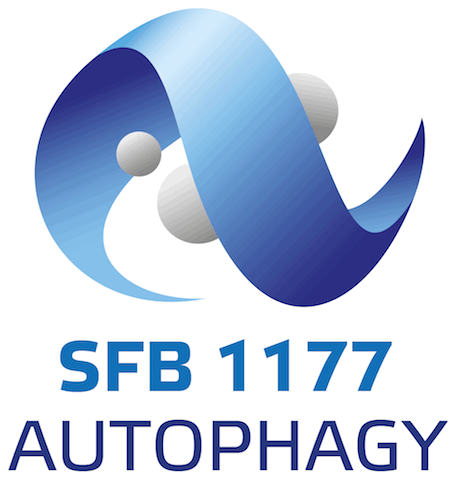E02
Selective autophagy network in diabetic nephropathy
In the 1st funding period we proved that the extracellular matrix component (ECM) biglycan stimulates autophagy in macrophages by binding to CD44, thereby causing M2 macrophage polarization and kidney regeneration. Furthermore, we found that ABIN-1, a known regulator of macrophage polarization, interacts with mitophagy-related proteins and LC3B-II. In this project, we will decipher the mechanisms of ECM/CD44-dependent selective autophagy driving macrophage polarization and verify ABIN-1 as a new selective autophagy receptor to develop novel therapeutic activators of selective autophagy that prevent the progression of diabetic nephropathy.

Working model: Hypothetical mechanisms of ECM components-triggered selective autophagy. We hypothesize that ECM components trigger the selective degradation of M1 transcription factors via CD44 in the absence of its cytoplasmic binding proteins. Concurrently, ABIN-1 acts as a new mitophagy receptor and specifically degrades damaged mitochondria via selective autophagy in macrophages. Degradation of M1 transcription factors and mitophagy induces M1 to M2 macrophage polarization.
Principal Investigators
Prof. Dr. LILIANA Schaefer
Institut für Allgemeine Pharmakologie und Toxikologie
GU Frankfurt
Theodor-Stern-Kai 7
60590 Frankfurt a.M.
Germany
Office: +49 (0)69 63 01-78 99
schaefer@med.uni-frankfurt.de
